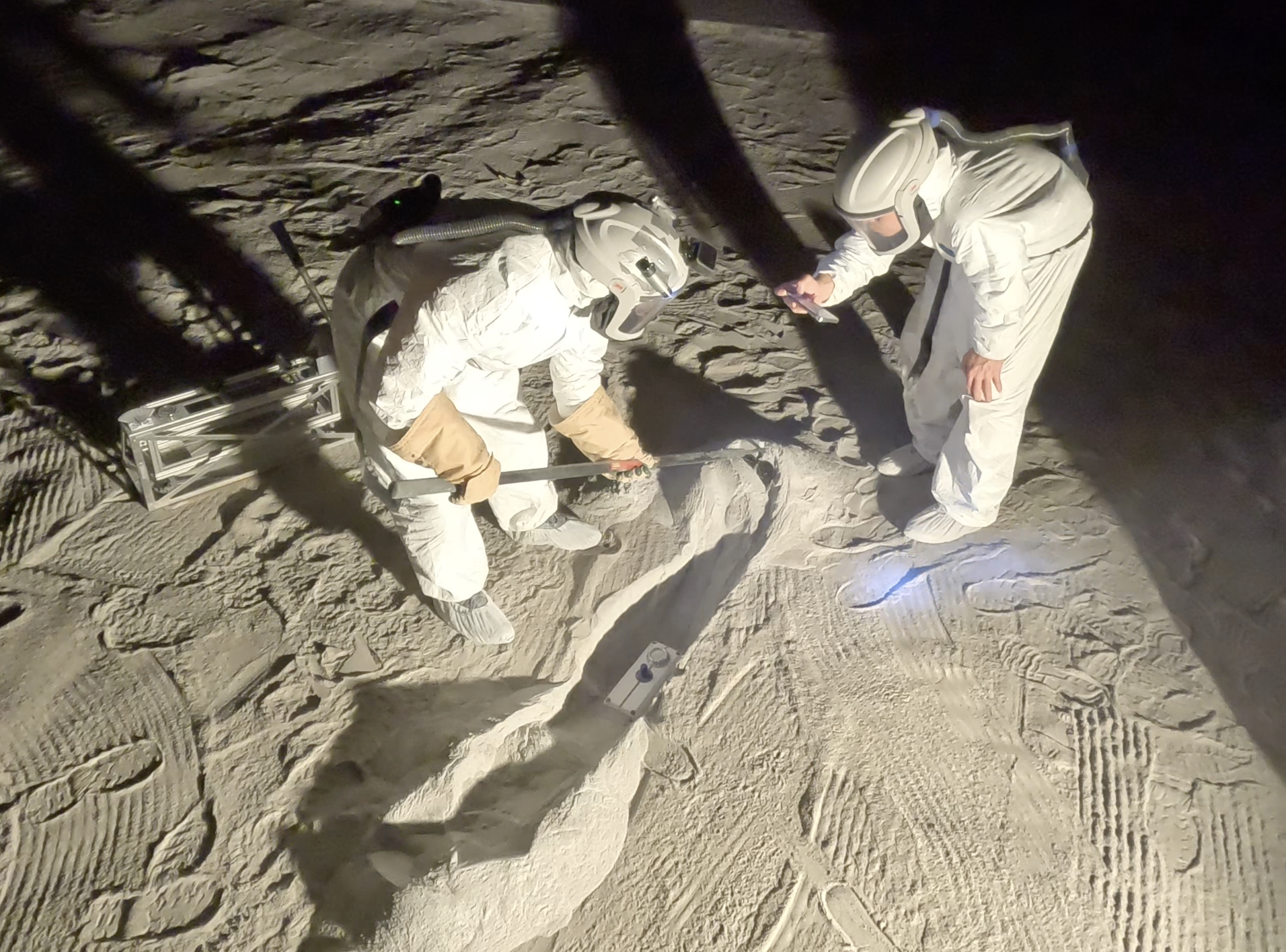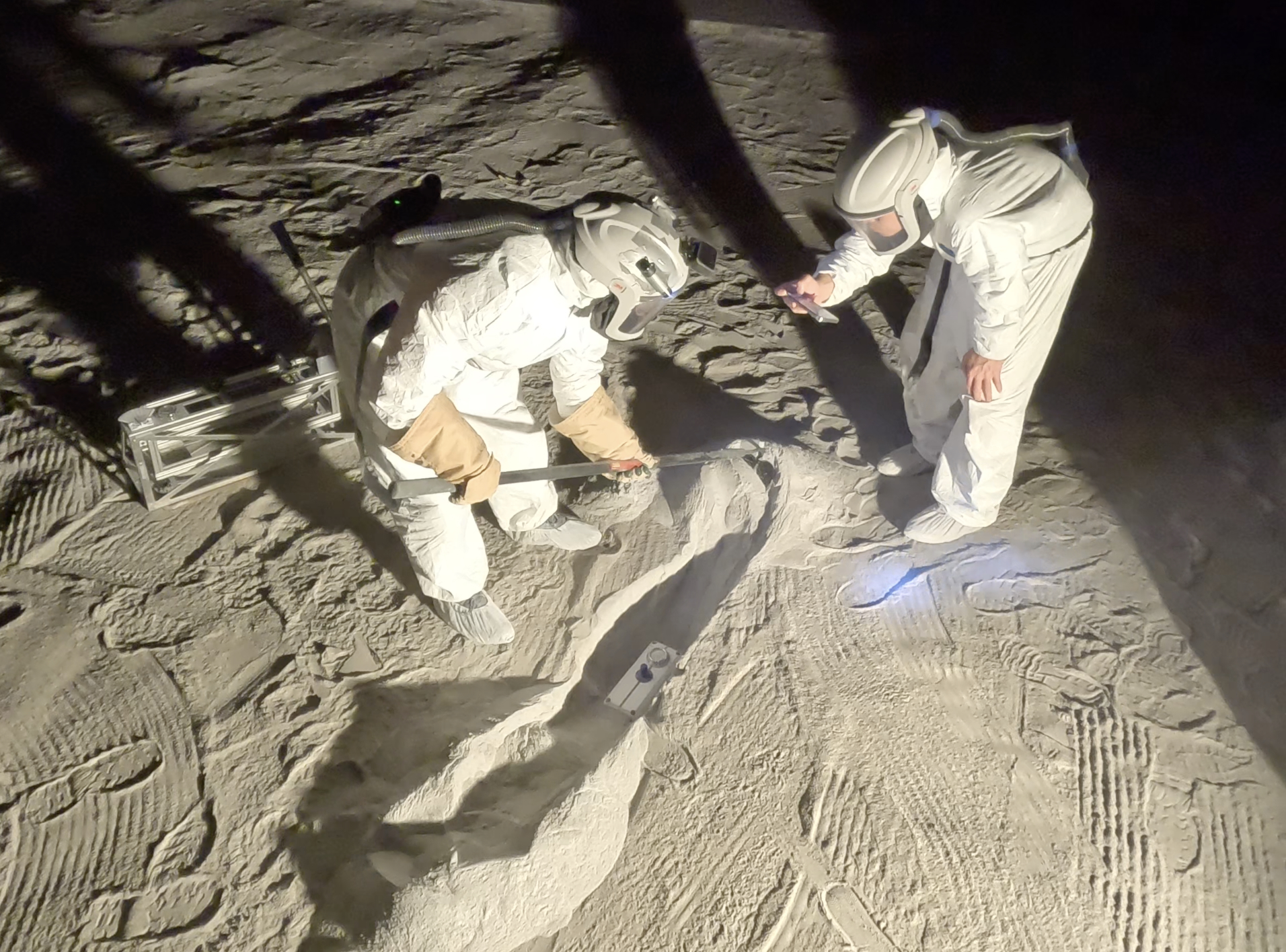On Sept. 9 and 10, scientists and engineers tested NASA’s LEMS (Lunar Environment Monitoring Station) instrument suite in a “sandbox” of simulated Moon regolith at the Florida Space Institute’s Exolith Lab at the University of Central Florida in Orlando.
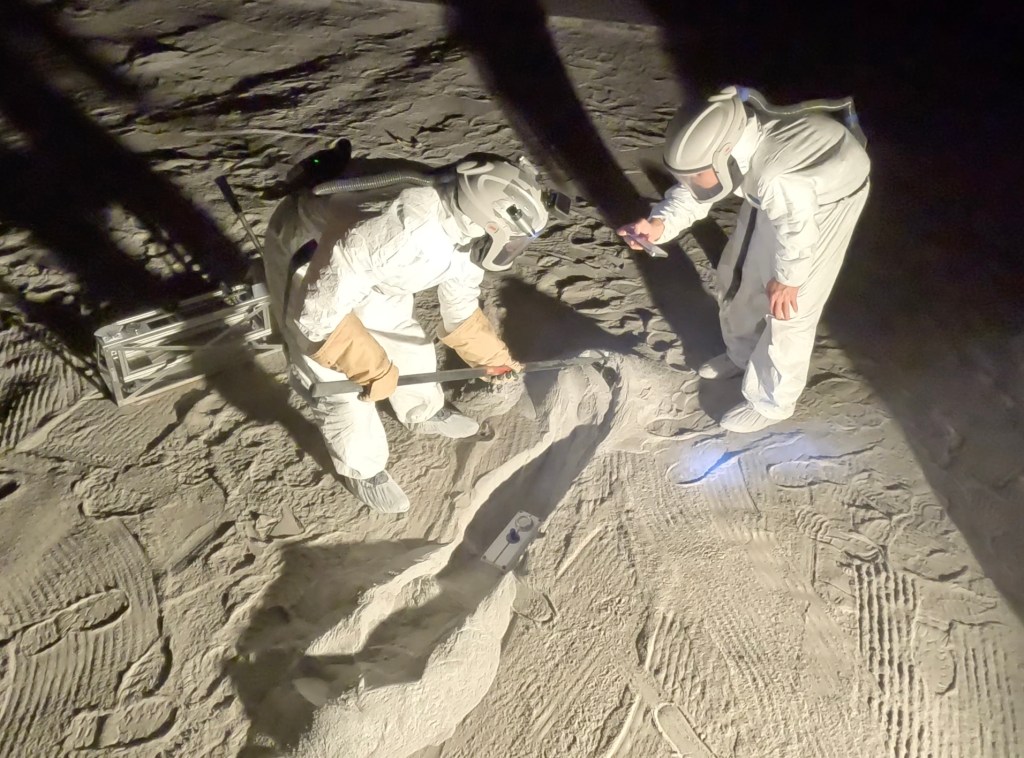
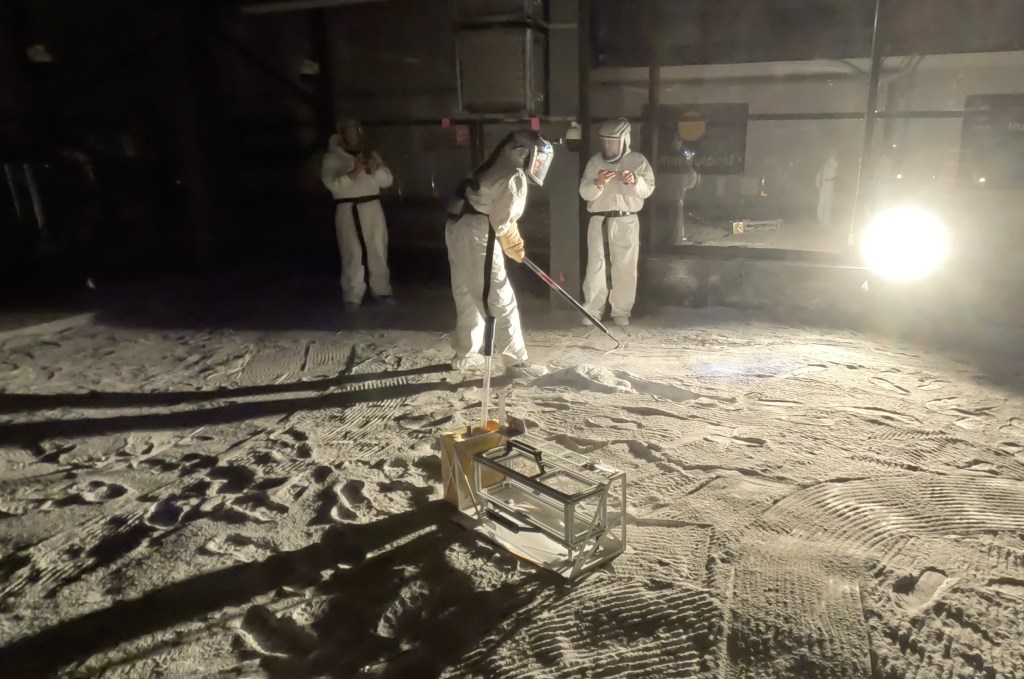
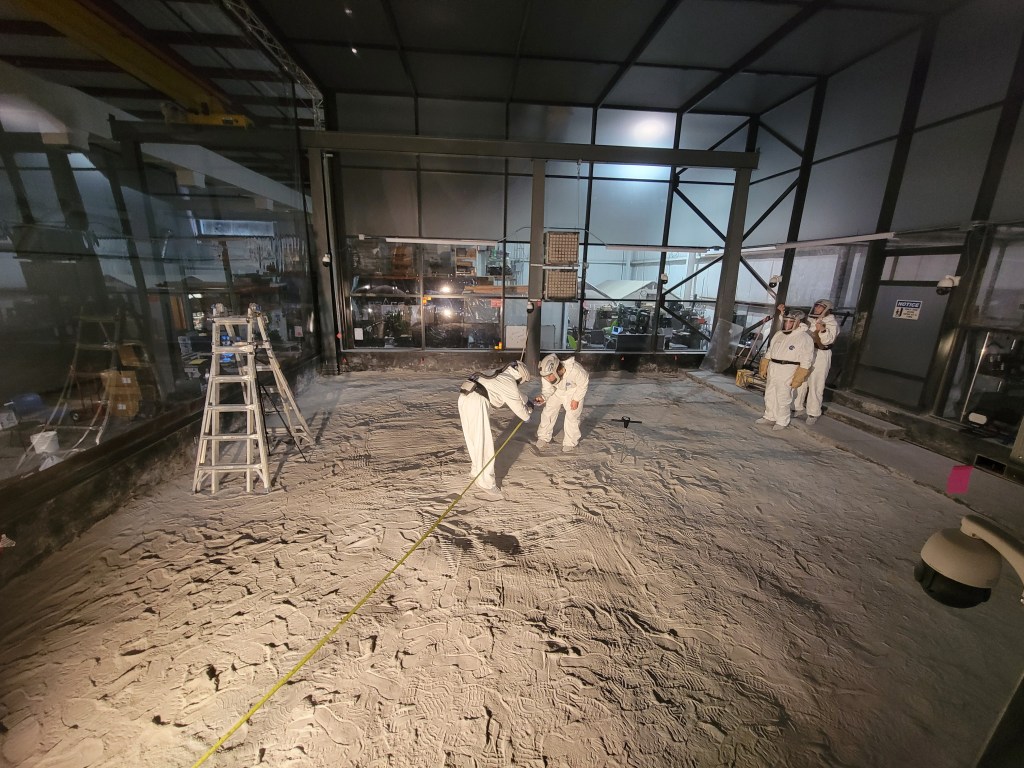 Lunar regolith is a dusty, soil-like material that coats the Moon’s surface, and researchers wanted to observe how the material would interact with LEMS’s hardware, which is being developed to fly to the Moon with Artemis III astronauts in late 2026.
Lunar regolith is a dusty, soil-like material that coats the Moon’s surface, and researchers wanted to observe how the material would interact with LEMS’s hardware, which is being developed to fly to the Moon with Artemis III astronauts in late 2026.
Designed and built at NASA’s Goddard Space Flight Center in Greenbelt, Maryland, LEMS is one of three science payloads chosen for development for Artemis III, which will be the first mission to land astronauts on the lunar surface since 1972.
The LEMS instrument package can operate both day and night. It will carry two University of Arizona-built seismometers to the surface to perform long-term monitoring for moonquakes and meteorite impacts.
Image credits: NASA/UCF/University of Arizona
Behind the Scenes of a NASA ‘Moonwalk’ in the Arizona Desert NASA’s Artemis II Crew Uses Iceland Terrain for Lunar Training

